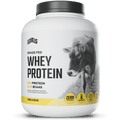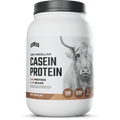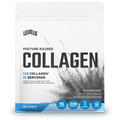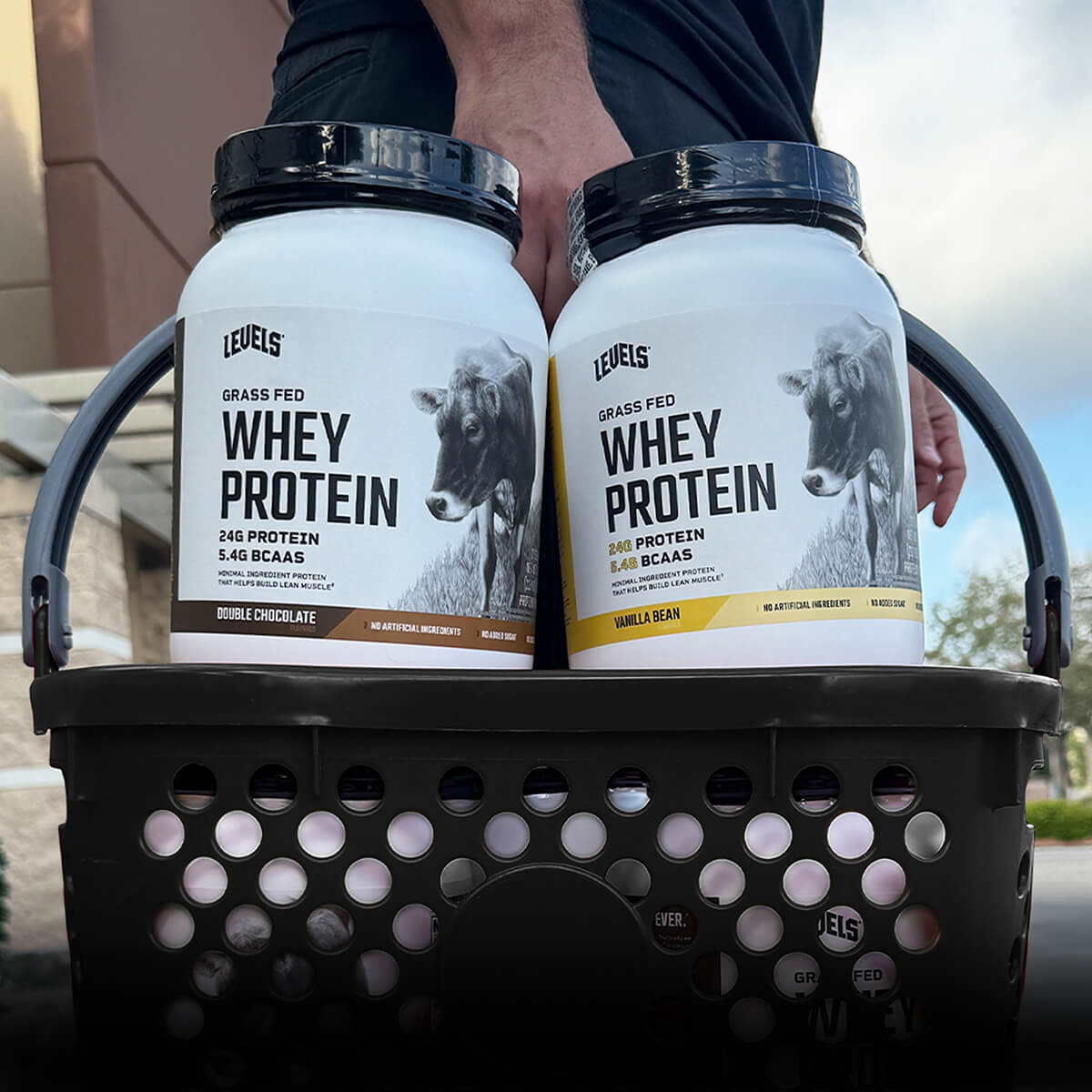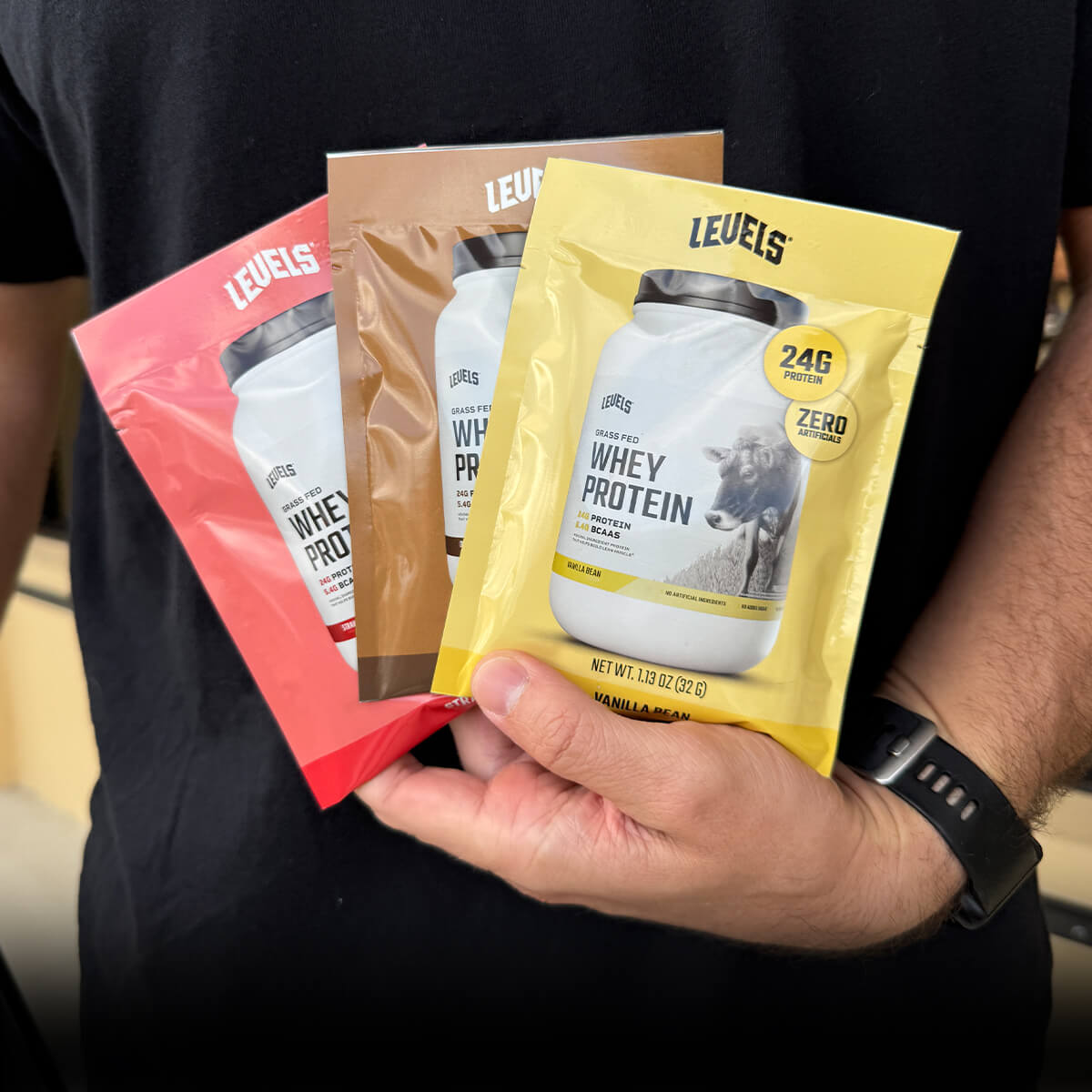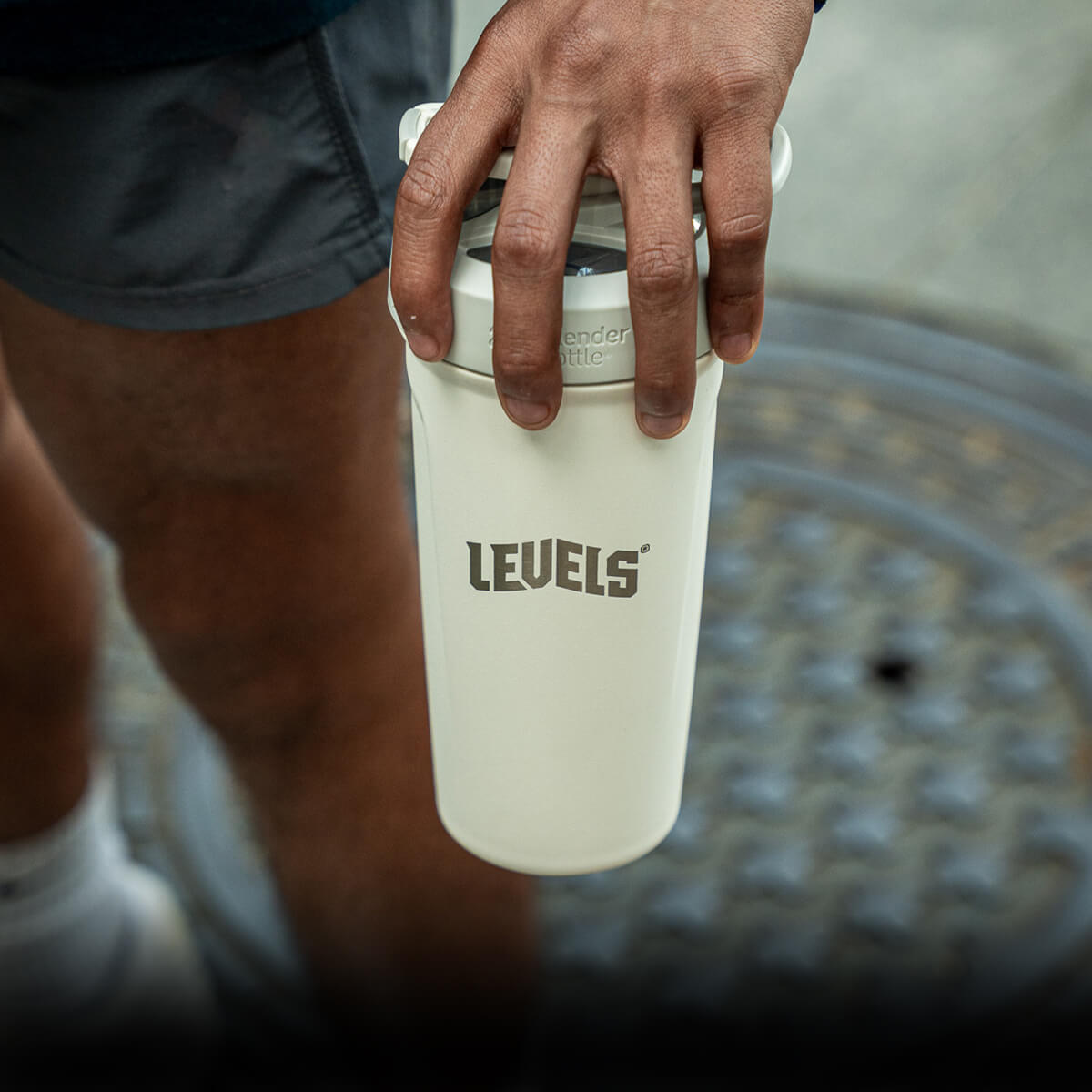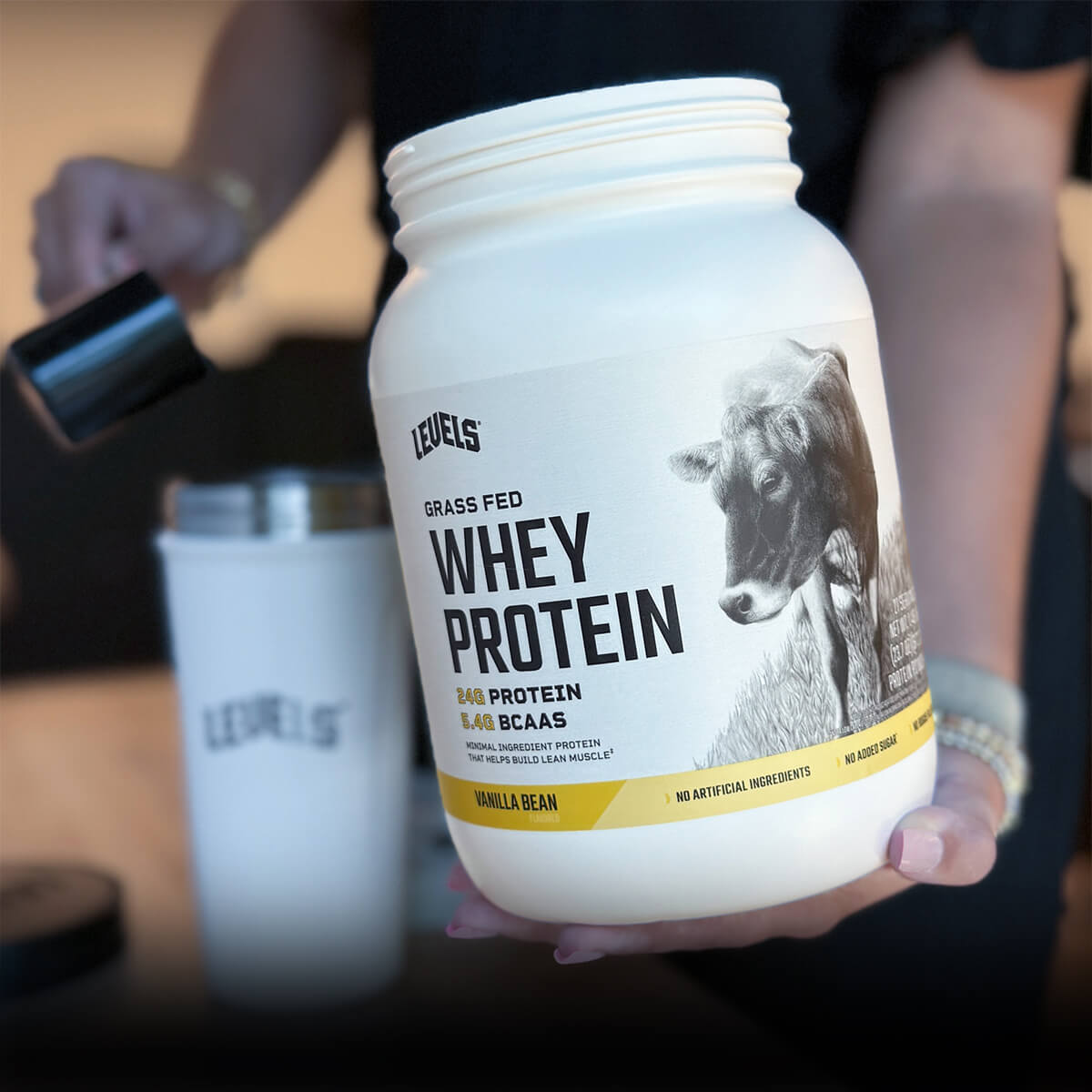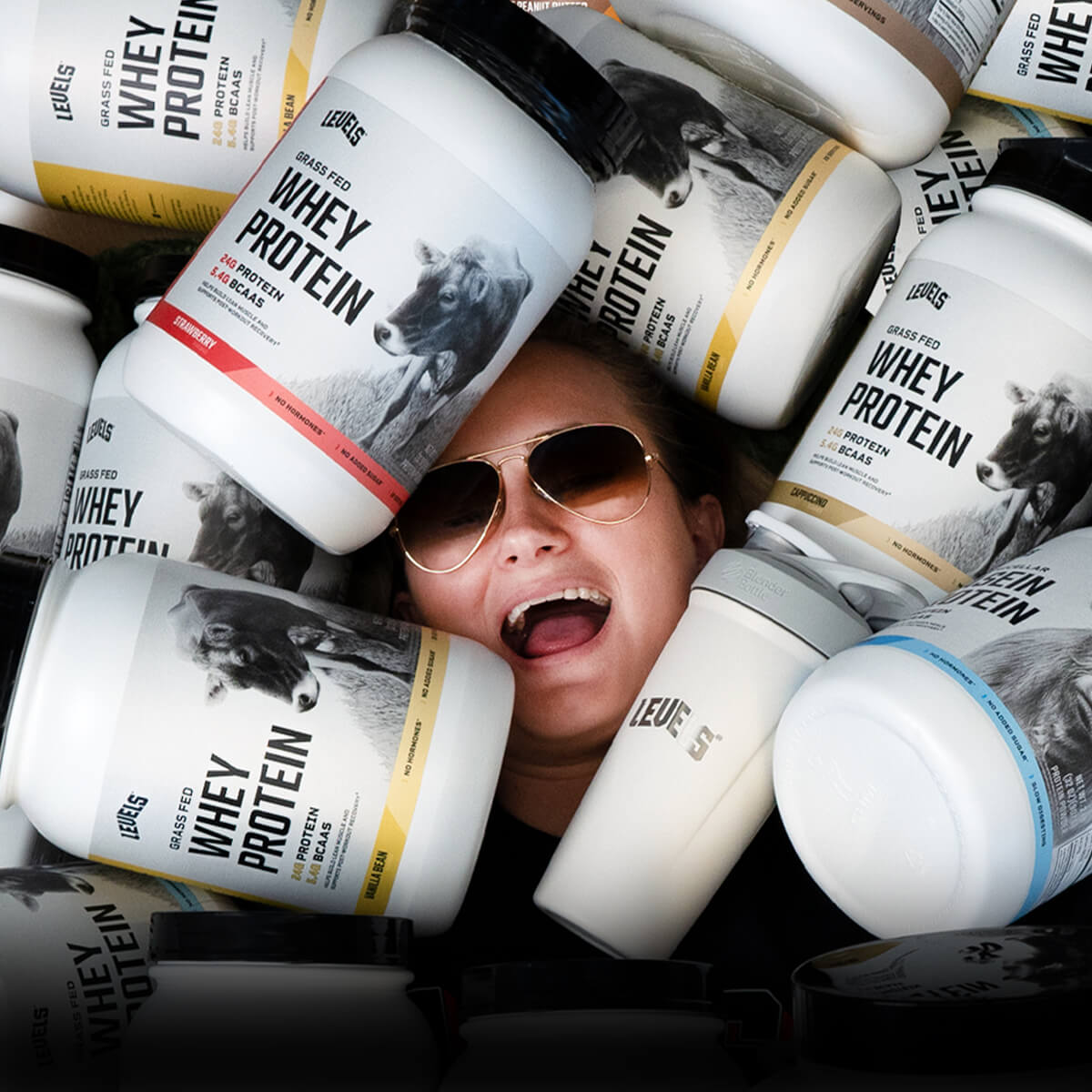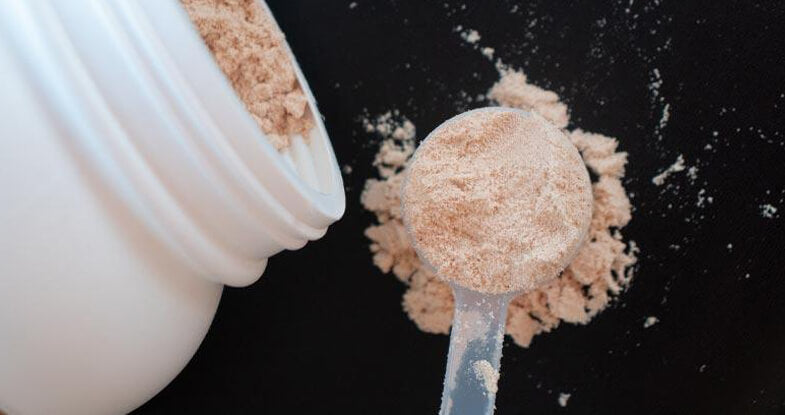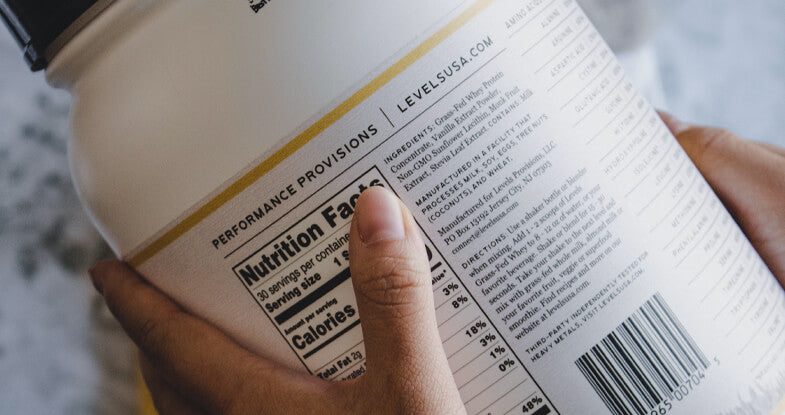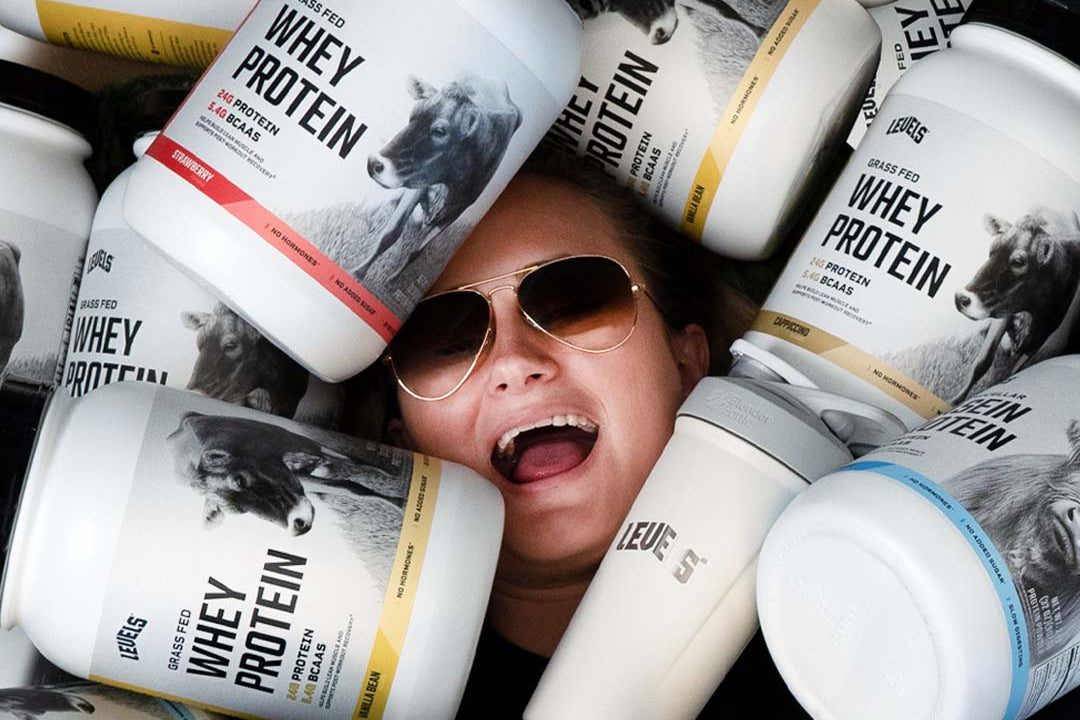BCAAs and protein have plenty in common.
They’re both sold as popular, science-backed supplements to build lean muscle, speed up recovery, and enhance performance.
And in fact, 100% of the amino acids found in BCAAs are also found in complete proteins.
So if you’re confused about the difference between BCAAs and protein, that’s understandable.
But if you want to use either supplement to help you reach your goals, you’ll get much better results if your nutritional knowledge is on point.
Keep reading to learn the science behind branched-chain amino acids and protein, 3 major differences, when to take BCAAs, when to take protein, and more.
What Are BCAAs?
BCAAs contain the amino acids leucine, isoleucine, and valine. They get their name from a “branched” molecular structure not found in other amino acids.
Branched-chain amino acids belong to the group of 9 amino acids known as essential amino acids because your body can’t make them on its own. As a result, you must obtain BCAAs and other essential amino acids from your diet.

In your body, BCAAs are a vital part of muscle, heart, kidney, liver, and brain tissue[*].
You can find BCAA products sold as a powder (to mix with water) as well as ready to drink.
And research shows that when taken in supplement form, BCAAs may support muscle-building, reduce post-workout soreness, and speed exercise recovery[*].
Of the 3 BCAAs, leucine appears to be the most important one for stimulating lean muscle growth[*]. Most BCAA supplements contain a higher ratio of leucine to isoleucine and valine. For example, 2:1:1 BCAAs have twice as much leucine, and 4:1:1 BCAAs have four times as much.
Now it’s time to dive into the science behind protein and how it differs from BCAAs. But if you’re still craving more info on BCAAs, read When to Take BCAAs: What Science Says (Plus 5 Fitness and Health Benefits).
What Is Protein?
Protein, sometimes called the building block of life, is made from chains of amino acids that are bonded together.
And protein is not only an essential part of your body’s tissues, but also a macronutrient that’s necessary to stay alive.
Like carbohydrates, dietary protein has 4 calories (kcal) per gram. But unlike carbohydrates, when you eat protein, your body can use the amino acids as fuel or to build muscle and repair tissues.
Although dietary protein occurs in thousands of different forms, not all protein is created equal.
Protein quality refers to the availability, digestibility, and amount of essential amino acids (EAAs) in a protein source[*]. (Keep in mind that BCAAs are also essential amino acids, as we covered in the previous section.)
For the most part, animal proteins like meat and dairy are higher quality, while plant proteins are of lesser quality[*].
You can absolutely survive on a plant-based diet, but vegetarian or vegan proteins don’t contain as many BCAAs and EAAs, nor do they absorb as well as animal proteins.
Also, many plant proteins are incomplete proteins, meaning some of them lack one or more of the 9 EAAs.
Along with eating whole foods, people also supplement protein in their diet with protein powders like whey, casein, collagen, or pea protein. You can buy protein supplements ready to drink as well as in powder form to make your own protein shakes.
3 Differences Between BCAAs and Protein
1. BCAAs Aren’t a Complete Protein
To be considered a complete protein, a protein source must contain all 9 essential amino acids.
BCAAs only have 3 amino acids, whereas most dietary proteins have 17 or more amino acids[*].
What’s the big deal about complete proteins, though?
First of all, you must eat around 55 grams of complete protein per day at minimum to avoid starvation[*].
And if you lift weights or play sports, studies show you likely need at least twice as much protein to recover and stay healthy, let alone achieve optimal results[*].

Because they’re not a protein source, BCAAs don’t count towards your protein needs. In fact, if you consume too many BCAAs and not enough whole proteins, you might even trigger dangerous amino acid imbalances or deficiencies[*].
2. They Come From Different Sources
If you’re vegan, you’ll clearly want to avoid animal protein products like whey protein or hydrolyzed collagen.
In that case, you can’t go wrong with plant-based protein powders to ensure you get enough protein.
However, BCAA supplements can come from vegan as well as animal sources, depending on the manufacturer.
Vegetarians and vegans (and maybe other people) will definitely want to steer clear of animal-based BCAAs that often come from fur, hair, or feathers.
The bottom line is this: if you don’t eat animal products, make sure to stick with plant-based proteins or BCAAs labeled plant-based from reputable manufacturers.
3. BCAAs and Protein Have Different Purposes
Ultimately, despite their similarities, BCAAs and protein are very different. And they’ve got different purposes.
BCAAs aren’t a food, they aren’t a source of dietary protein, and they won’t prevent you from being deficient in protein.
Their intended use is relatively narrow, as a way to increase muscle-building, performance, and recovery by using them before or during workouts[*].
And while BCAA usage is entirely optional, everyone needs to eat protein.
Also, as supplements, protein powders have a far wider range of benefits and uses compared to BCAAs.
You can use protein powder like whey to boost your protein intake, as a meal replacement, post-workout as a recovery shake, and in high-protein recipes.
Or you can use collagen protein for less joint pain, healthier bones, and better sleep.
BCAAs vs. Protein: Which Is Better?
In a head-to-head comparison, there’s no question. Protein beats BCAA supplements every time.
Remember that your body requires protein to recover from workouts, build lean muscle, repair tissues, and stay alive.
And protein supplements like whey protein are more versatile than BCAAs and better backed by credible research.

Can You Take BCAAs and Whey Protein Together?
Lastly, you might be wondering about combining BCAA and whey protein together in the same shake.
We actually don’t recommend you add BCAAs to your protein shakes, with one exception.
If you use plant-based protein powder instead of whey for whatever reason, you can add BCAAs or standalone leucine to boost the protein quality[*].
Practically speaking, that means you may get better results adding plant-based BCAAs or leucine compared to using plant-based protein by itself.
But the truth is, if you’re getting enough high-quality protein, you probably don’t need to take BCAA supplements at all.
For instance, grass-fed whey protein has around 20% BCAAs by weight, meaning you can get up to 6 grams of BCAAs per 30g scoop of whey[*].
And most of the studies showing a benefit to BCAA supplements are in people with relatively low protein intakes. The benefits appear to be less in people with higher whole protein intakes[*].
At Levels, we recommend that most people start by simply getting enough protein rather than worrying about BCAAs.

Along with lifting weights and eating the right amount of calories for your goal, it’s one of the best ways to accelerate your progress. Many times, that’s all it takes.
You can use the protein calculator to determine your optimum protein intake based on your body weight and desired outcome.
And keep in mind that your daily protein intake can come from a mix of whole foods and protein shakes. However, protein shakes are the best choice for post-workout recovery.
BCAAs Pre-Workout or Pre-Meal
If you still want to try BCAAs, we recommend taking 10-20 grams of BCAAs on an empty stomach pre-workout to increase performance and reduce soreness.
Then, after you finish training, drink a post-workout whey protein shake separately to enhance recovery.
Or, on non-training days, you can take BCAAs on an empty stomach 30 minutes before eating, then consume a meal that includes high-quality complete protein.
The Bottom Line
If you’re having trouble deciding whether to reach for BCAAs or a protein shake, relax. The issue isn’t particularly complicated.
The vast majority of people should just focus on obtaining enough high-quality protein. You can do that with whole foods, but adding in some protein powder makes it much easier.
And if you’re obtaining sufficient protein from a mix of whole foods and supplements, the chances are high that you don’t need to worry about taking extra BCAAs, anyway.
